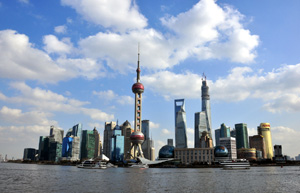A company's high market capitalization does not guarantee the success of a brand or inform the billions of everyday decisions that create the company's future, a recent report says.
"We believe 21st century brand strength is best understood in terms of the balance of perceptions between what a company stands for – its purpose – and how far it delivers on it, the resulting experience," says Dan Dimmock, Head of Strategy, FutureBrand APAC , a global brand and innovation company.
To test this hypothesis, the company set out to measure global public perceptions of the global top 100 companies by market capitalization and came up with The FutureBrand Index. It found out that while the top 100 companies can be admired for their financial prowess, only 22 of them are seen as "future brands" in the opinion of an informed public.
Looking at opinions on which of the top 100 companies are most likely to be moving forward in three years, half of the companies mentioned are not in the current top 20 by market capitalization, Dimmock says.
The report should raise executives' awareness of their brand strength and get them to pay more attention to brand building, he says. The key drivers of a "future brand" relate to strength of perception around thought leadership, innovation and authenticity, rather than commercial power, he says.
Only two Chinese companies, Tencent and China Mobile, figure in the top half of The FutureBrand Index.
Unlike most US international companies that have a genuinely global reach, it is debatable whether Chinese companies, despite their strong financial performances, are strongly perceived globally, Dimmock says, and there are now great opportunities for branding in China.
Lucien Harrington, managing director, greater China, for FutureBrand, says: "I think there is increasing sophistication about the role brand can play in a Company's growth. It is not just a logo, which can easily be ignored – it is strengthening the relationship and connections a business has with its customers. The stronger this bond, the more successful the Company will be.. More Chinese companies understand that they have to invest in brand that actually means something.
"In the next wave we will have stronger Chinese brands emerging."
Domestic demand in China and the demand of the middle class as well creates huge opportunities for branding, he says.
Harrington says that in China more and more companies have been "talking to us about branding and how to do about branding".
One reason for this is that companies are seeing their rivals concentrate on branding and want to get in on the act, too, he says.
Western companies used to enter China with brands identical to what they sold elsewhere, but now realize they need to localize to be more competitive.
"Chinese consumers are changing as well when it comes to the consciousness of consumers. When they buy something, particularly food and drinks, they want to know what the ingredients are. When they see the label, they won't just read and believe it. They need a brand (one they can believe in)."
|
 |
 |
| Two private banks get nod | Private firms more diligent in CSR activities |
